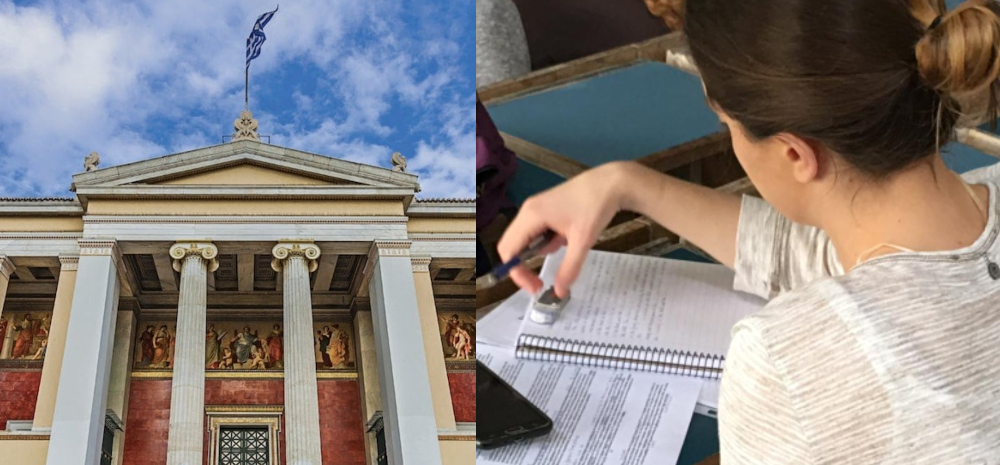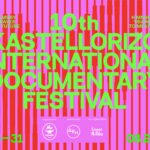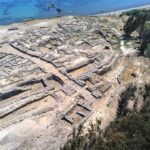The web portal Study in Greece is campaigning for the promotion and international visibility of Greek Universities and the comparative educational advantages of our country. In particular, the campaign focuses on the foreign language study programmes that Greek Universities offer to Greek and international students. The initiative is supported by the General Secretariat of Higher Education of the Ministry of Education and Religious Affairs and the General Secretariat for Greeks Abroad and Public Diplomacy of the Ministry for Foreign Affairs. In this context, a number of educational programmes and actions are presented in detail on a regular basis, such as undergraduate and postgraduate programmes, summer schools etc, to inform international students about the many foreign language options offered by Greek Universities.
Study in Greece interviewed Professor Maria Sidiropoulou, of the Department of English Language and Literature at the National and Kapodistrian University of Athens (NKUA), on the MA “English Language, Linguistics and Translation” offered by the university, on the programme’s content and what it has to offer to international students.
 Maria Sidiropoulou is Professor of Translation Studies at the Department of English Language and Literature, School of Philosophy, National and Kapodistrian University of Athens. She was president of the Interuniversity and Interdeparmental Co-ordinating Committee of the Translation-Translatology MA Programme of the National and Kapodistrian University of Athens, in 2009-2011 and director of the Language and Linguistics Division of the Department of English in 2004-2006. She has taught in two postgraduate programmes. Her recent publications (books, co-/edited volumes, articles) deal with intercultural issues manifested through translation in the press, in advertising, in EU documentation, in literature, in academic discourse, on stage and screen. She is a founding member of the META-FRASEIS/ΜΕΤΑ-ΦΡΑΣΕΙΣ translation Programme.
Maria Sidiropoulou is Professor of Translation Studies at the Department of English Language and Literature, School of Philosophy, National and Kapodistrian University of Athens. She was president of the Interuniversity and Interdeparmental Co-ordinating Committee of the Translation-Translatology MA Programme of the National and Kapodistrian University of Athens, in 2009-2011 and director of the Language and Linguistics Division of the Department of English in 2004-2006. She has taught in two postgraduate programmes. Her recent publications (books, co-/edited volumes, articles) deal with intercultural issues manifested through translation in the press, in advertising, in EU documentation, in literature, in academic discourse, on stage and screen. She is a founding member of the META-FRASEIS/ΜΕΤΑ-ΦΡΑΣΕΙΣ translation Programme.
Please tell us the detailed features of your M.A. in English Language, Linguistics and Translation, its goals and its success plans for the future.
The MA Programme “ENGLISH LANGUAGE, LINGUISTICS AND TRANSLATION” focuses on ‘Linguistics and its applications’ (with emphasis on the English language) and on ‘Translation Studies and Interpreting’ between English and Greek.
The purpose of the programme is to introduce MA students to research and applications in the fields of
a) Linguistics and its applications
b) Translation and Interpreting
Specialisation (a) aims at exploring linguistic theory and its contribution to applications across the fields of linguistic analysis, electronic text processing, digital literacy and educational linguistics, but also bilingual and multilingual contexts of language use.
Specialisation (b) aims at exploring translation and interpreting theory and practice, focusing on a wide variety of genres and situations (settings) of language use. It uses advanced technology for research in linguistic analysis and its applications that are shaped and affected by the use of technology, thus adopting an interdisciplinary approach. With respect to interpreting, the programme focuses on the modes and types of medical interpreting, a rapidly growing field of community interpreting as the complexity of human interaction creates news conditions of interlingual and intersemiotic communication.
The programme grants a MΔΕ (Potgraduate Specialisation Degree) equal to an MA (Master of Arts) degree, in the following specialisations:
a) Μ.Α. in Linguistics: Theory and Applications
b) Μ.Α. in Translation Studies and Interpreting
The progamme offers one specialisation per academic year, on a rotational basis. For instance, when one specialisation is activated at the beginning of an academic year in September, the other specialisation is activated in the following year. More specifically, when specialisation (a) “Μ.Α. in Linguistics: Theory and Applications” runs its 3rd (dissertation) semester, specialisation (b) “Μ.Α. in Translation Studies and Interpreting” runs its first semester of studies, and vice versa. The specialisations alternate as follows:
 The scientific make-up of the programme manifests itself in its content of studies and the programme operation. The study programme advances as the instructors adjust and improve their experience to recent scientific and technological developments.
The scientific make-up of the programme manifests itself in its content of studies and the programme operation. The study programme advances as the instructors adjust and improve their experience to recent scientific and technological developments.
For the Study Guides of the two specialisations, please visit:
LINGUISTICS: THEORY AND APPLICATIONS
TRANSLATION STUDIES AND INTERPRETING
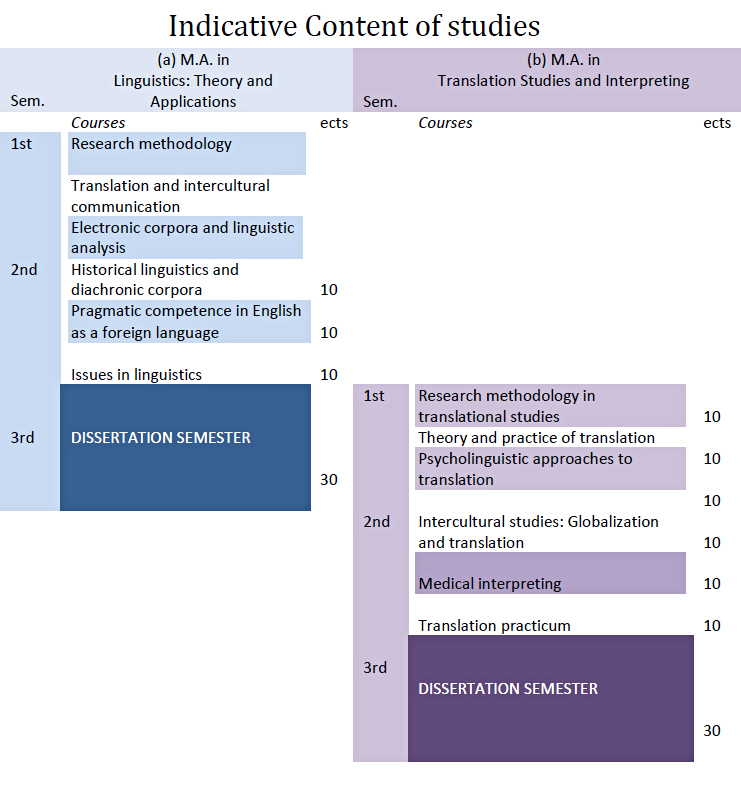 Given that the Master’s courses are taught in English, would you like to tell us why this Master aims at international students?
Given that the Master’s courses are taught in English, would you like to tell us why this Master aims at international students?
All courses are taught in English, in the Department of English Language and Literature, NKUA.
Both MA specialisations are interested in attracting international students; the very content of the MA tackles intercultural variation and develops intercultural awareness, which may be fruitfully raised through intercultural interaction in the context of the MA specialisations. Foreign students may develop their intercultural awareness by attending an MA programme in Greece, while Greek students may benefit from the opportunity to juxtapose their own linguistic insight with foreign students’ perspectives.
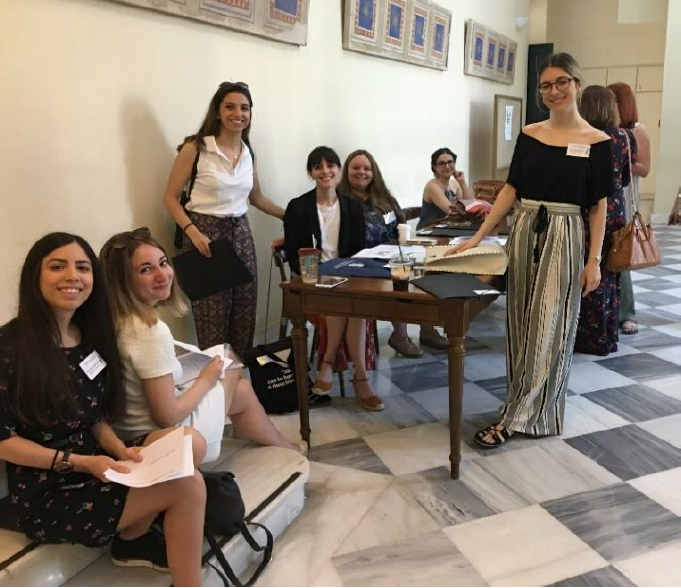 2018-2020 MA students organising a postgraduate symposium titled Textual Identities through Translation, NKUA, Central Building, Feb. 2019. A later version of their work made a Special Issue in a John Benjamins journal.
2018-2020 MA students organising a postgraduate symposium titled Textual Identities through Translation, NKUA, Central Building, Feb. 2019. A later version of their work made a Special Issue in a John Benjamins journal.
What is the basis of this postgraduate programme, so that students can achieve an academic career later? Which are the benefits in general?
Awareness of intercultural variation is an area of expertise which has numerous applications in the market: in education, in business, in state mechanism, in translation, in every context where international human interaction occurs. It boosts international communication skills and advances intercultural understanding.
 2020-2022 MA students/speakers at the online postgraduate symposium Translation, Education and Pragmatics (Feb. 2021, language: English), co-organised during the pandemic by two Italian and two Greek universities: the Universities of Bari, Salento, Aristotle and NKUA (photo courtesy of the participants).
2020-2022 MA students/speakers at the online postgraduate symposium Translation, Education and Pragmatics (Feb. 2021, language: English), co-organised during the pandemic by two Italian and two Greek universities: the Universities of Bari, Salento, Aristotle and NKUA (photo courtesy of the participants).
Are you satisfied with attracting foreign language students? Are efforts being made to make the postgraduate programmes more attractive to be selected by more foreign students?
The MA Programme has already made attempts at internationalising its perspective and the outcome has been richer, tangible and successful.
It aims at internationalising its audience, for the students’ mutual benefit, as suggested.
It has also made attempts at internationalising its teaching staff. Two staff members, one from the University of Brighton, UK, and another from the University of Neuchâtel, Switzerland, are regularly participating in running a course, in collaboration with one of the Department professors.
In addition, the Department laboratories organise seminars by local and international researchers, who are invited to explore specific topics as part of the MA’s curriculum, and these are often integrated in the programme of studies.
For some 2020-2021 lectures and seminars, see here.
Poster for the online postgraduate symposium Translation, Education and Pragmatics (Feb. 2021, language: English).
In what ways do you think that Greece can progress in the extroversion and the promotion of the universities in order to benefit both the economy and the educational profile of the country?
Primarily by launching ‘projects’ (in a specific and a general sense) in the form of Interdepartmental MA courses, International Conferences, joined PhD supervisions, which require cooperation with other departments, local and foreign. Our experience suggests that collaboration and academic networking brings multiple mutual benefits, one of which is appreciation of the ‘other’ and self-awareness.
Tell us a few words about NKUA (EKPA in Greek) which is the oldest and largest university in Greece with important and pioneering work in these almost two centuries.
The bicentennial of the oldest Greek university will find the NKUA Institution to be leading the way towards broadening the perspective of tertiary education in the country, in collaboration with other Greek universities.
Our insider’s view acknowledges and immensely appreciates the efforts made at improving the University’s educational profile, its social presence, especially at periods of crises, and the beneficial aura the University disseminates in society. The MA Programme “ENGLISH LANGUAGE, LINGUISTICS AND TRANSLATION” is glad to be in tune with this effort.
N.M.

